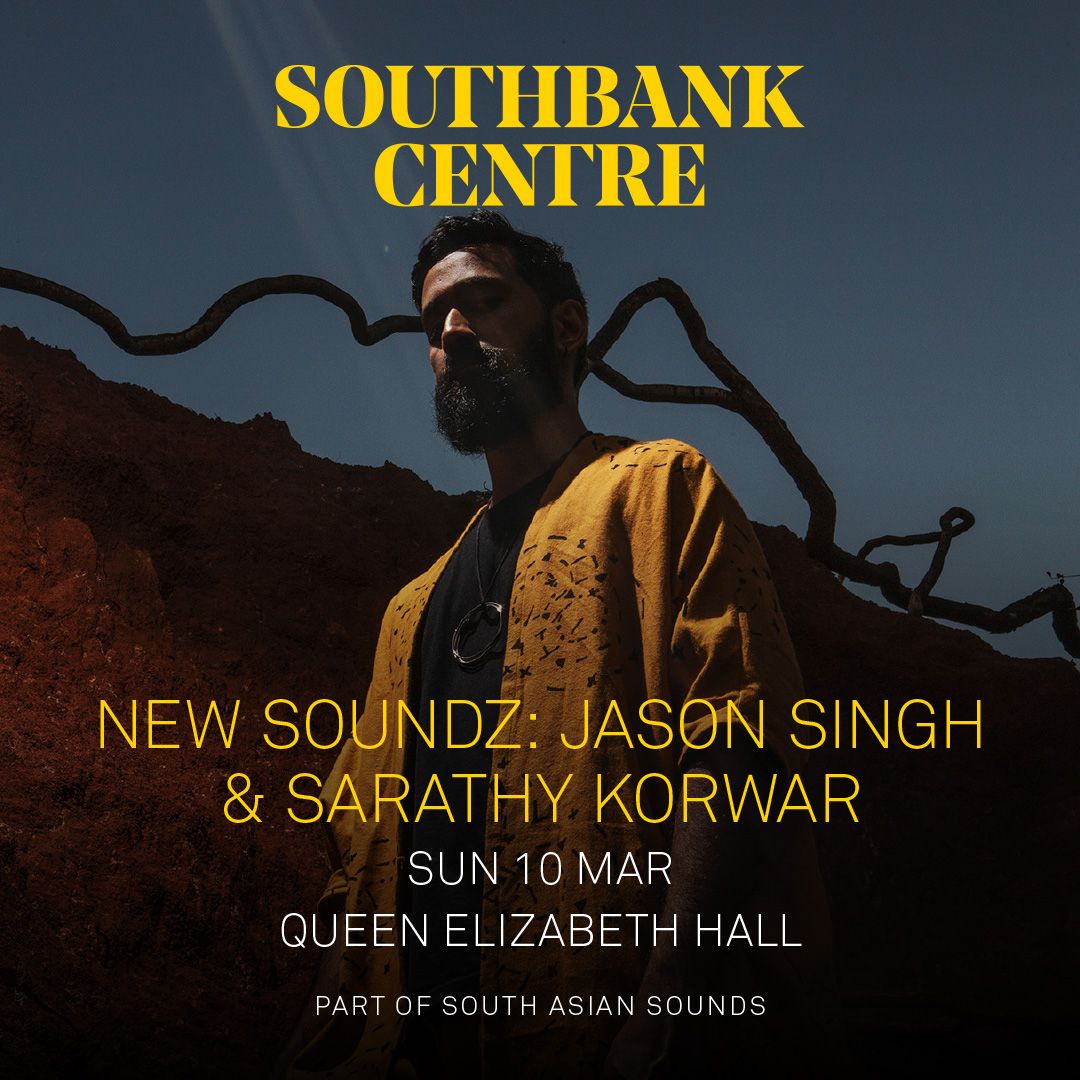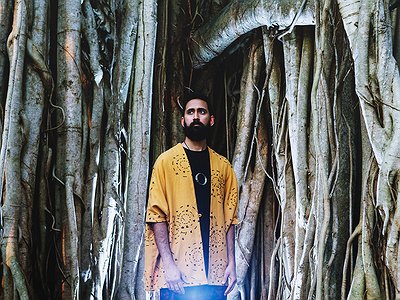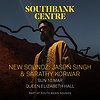Name: Sarathy Korwar
Nationality: US-born, Indian-raised, London-based
Occupation: Drummer, percussionist, composer, bandleader
Current event: Sarathy Korwar is one of the artists at the South Asian Sounds Festival as presented by Asian Arts Agency. For his concert on March 10th 2024, Jason will collaborate with sound artist, nature beatboxer, producer, and DJ Jason Singh. More about that performance here. 
[Read our Jason Singh interview]
If you enjoyed these thoughts by Sarathy Korwar, visit his official homepage for more information. He is also on Instagram, and Facebook.
Or head over to our earlier Sarathy Korwar interview about improvisation and our talk with him about his album Kalak.
Late Rush-drummer Neil Peart said: “The equipment is not an influence. It doesn't affect the way I play. It's an expression of the way I play.” What's your take on that?
That’s an interesting question.
For me, because I end up playing drums on a variety of different drum kits wherever I go. Partly because it would not be financially feasible to travel with a drumkit. But it is also because drum kits sound so unique and personal, there’s a different tonality and as such, it inspires me to play in a different way.
I really look forward to accessing a different journey into playing the instrument, I think the equipment is definitely an influence in the way it affects my expression of the way I play.
What were some of the main challenges in your development as a drummer / percussionist? Which practices, exercises, or experiences were most helpful in reaching your goals?
One of the main things for me was to understand in my own head what kind of music I wanted to make.
I play the tabla as well, and it was always a push and pull between how much classical Indian I wanted to play, how much jazz I wanted to play, how much drum kit as opposed to how much tabla, and finding the balance between those things as well as finding comfort in my own identify through my drumming.
That has been the biggest challenge but also something I’ll never completely find peace with but what I hope makes me interesting and unique!
The biggest practice for me has been trying new sounds and making mistakes yet learning from them. I love experimenting with it taking risks and being brave.
How do you experience the concepts of "groove," "swing," and "rhythmic feel" in music?
I don’t think about them too deeply! I try not to overintellectualise and just feel the music.
I try not to write everything down – you can’t notate groove or swing, it’s something that’s felt and is learned through listening and playing music.
Experience helps, you’ve just got to experience the music and listen and play.
How do time signatures and tempo affect our perception of rhythm?
Both these factors influence our rhythm more than we think they do. We don’t necessarily need to understand what time is or tempo is, but both these factors are underused tools that can be used to not just change up a section of rhythm but a section of music itself.
Western and Indian classical music do this well – speeding up a tune, slowing down a tune. This doesn’t happen so much in pop music but can be incredibly useful.
Using different time signatures just messes with the way we expect to hear something and that can be a good thing!
What is the relationship between harmony, rhythm and melody? How do non-percussion instruments contribute to the overall rhythmic texture of a piece?
I don’t see any instrument as being non-percussive.
For me, every instrument is both melodic and percussive and I try not to make those distinctions as that can be limiting to the person who is playing and almost a disservice to their musicality.
For me, harmony, rhythm and melody all go together and they could all be the same thing. What’s to differentiate the tonality of a drum being played twice from being rhythm and melody and harmony?
Different drums have a distinct sound and drums and percussion are also timbral instruments. What drum sound are you aiming for and how are you making use of the timbral potentials and possibilities of your instruments?
I see the drums as very tonal instruments. I try to react to the sounds of the specific drums I’m playing on a specific night with the way I’m feeling, depending on how hard and soft I’m playing or how loud everyone else is playing. There are so many factors in how I decide to play.
I’m hoping I decide to be present in the room and present with the people around me so I can make those decisions through intuition and spontanaiety.
In relation to drumming, Stewart Copeland said: “Listening is where the cool stuff comes from. And that listening thing, magically, turns all of your chops into gold.” What do you listen for?
I love that, that makes a lot of sense to me. The main thing about being present comes from listening.
What I’m trying to do when I’m playing at a concert is to listen to my bandmates, the crowd, the silence and that inspires me to play. I try not to think about how I’m playing.
Do you feel that honing your compositional / songwriting skills has an effect on your drumming skills?
Great segue from the last question! When I try not to think about my drumming ability, I think about the macro view of the songs and the evening and the music, which has helped me a lot in my own drumming.
I try not to get bogged down in the minute details and technicality of drumming that one might often get caught up in, but looking at the song as a whole – which comes also from being a songwriter.
How has technology, such as drum machines and sequencers, impacted the way rhythm is created and perceived? Has it been a concrete influence on your own approach?
Electronic music in general has had a massive influence on me and the way we all think about music. Personally, the music that I love always is unquantized, has feel, has groove and is imperfect – so long as technology can help us achieve those things, that’s great.
I gravitate towards that kind of music, I love using electronics and I think they can help tell a story that acoustic instruments can’t always do by themselves
Physical strain is a particularly serious issue for many drummers. How does it manifest itself, how do you deal with it and in how far does it affect your creativity?
The older I get and being more in tune with my own body, and knowing when to stop pushing and how far I can push – this all comes with experience and takes time to learn.
I have learned that passion doesn’t need to be channelled into loudness and you can really connect to people and have a real impact by playing softly sometimes. Just remembering that can be really helpful to me.





